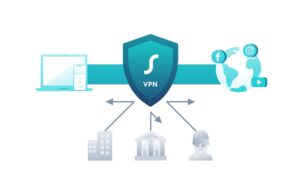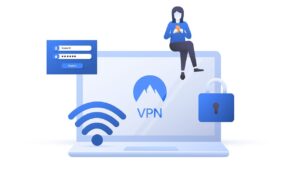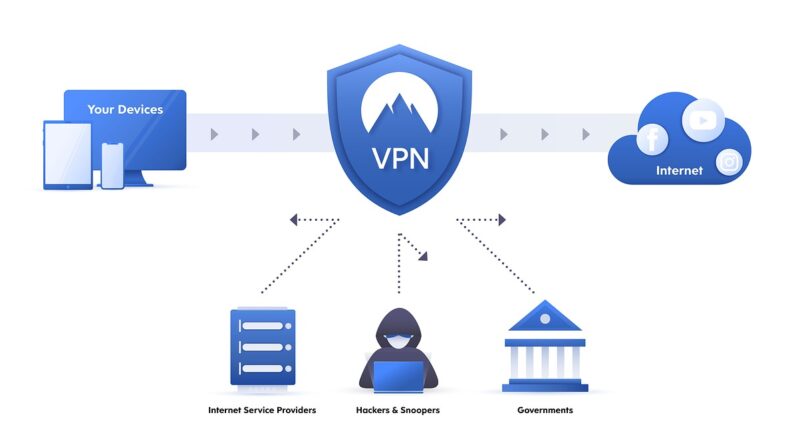Understanding VPNs: What They Are and How They Work
 In our increasingly digital world, concerns about privacy and security on the internet are more prominent than ever. One of the most powerful tools for enhancing online security and privacy is a Virtual Private Network, or VPN. This article provides an in-depth look at what VPNs are, how they work, and why they are essential for protecting your online activities.
In our increasingly digital world, concerns about privacy and security on the internet are more prominent than ever. One of the most powerful tools for enhancing online security and privacy is a Virtual Private Network, or VPN. This article provides an in-depth look at what VPNs are, how they work, and why they are essential for protecting your online activities.
A VPN is a critical tool for anyone concerned about their privacy and security online. Whether you’re looking to protect yourself on public Wi-Fi, avoid censorship, or simply keep your browsing history to yourself, a VPN can provide you with the security and peace of mind you need. By encrypting your internet connection and providing you with an anonymous way to browse the internet, VPNs play a crucial role in safeguarding digital privacy in an increasingly insecure world.
What is a VPN?
A VPN is a service that allows you to access the internet securely and privately by routing your connection through a server and hiding your online actions. The primary purpose of a VPN is to shield your internet activity from censorship, interference, and snooping on unsecured Wi-Fi networks.
Historical Context
Originally, VPNs were developed in the late 1990s to provide remote corporate employees secure access to their company’s network. However, with the growing public concern over privacy, VPNs have become widely used on a global scale by private individuals.
How Does a VPN Work?
A VPN works by establishing a secure “tunnel” between your device and the internet. This tunnel encrypts all data that passes through it, making it unreadable to anyone who intercepts it, including your Internet Service Provider (ISP), government entities, and cybercriminals.
Key Components of a VPN
- VPN Server: The VPN service provider has servers, often in multiple locations worldwide, that you can connect to. When you activate your VPN, you connect to one of these servers.
- VPN Protocol: VPNs use various protocols to create a secure encrypted connection; some of the most common include OpenVPN, L2TP/IPsec, and WireGuard.
- Encryption: This is the process of encoding data so that only the person with the right decryption key can read it. High-quality VPNs use strong encryption protocols such as AES-256 to secure data.
- Tunneling: This process involves placing the data packet within another data packet before it’s transmitted over the internet. This encrypted data packet is then sent between the VPN client and server, ensuring that the data remains secure during transit.
Why Use a VPN?
Privacy and Anonymity
By routing your IP address through a VPN server, your real IP address is hidden from websites and services you visit, preventing them from tracking your location or identifying your ISP. A VPN also helps hide your browsing activity from your ISP or anyone else who might be listening on your network.
 Security on Public Wi-Fi
Security on Public Wi-Fi
VPNs are essential when connecting to public Wi-Fi networks, such as those in coffee shops, hotels, or airports. Public Wi-Fi is notoriously insecure, leaving you vulnerable to being hacked or having your data stolen. A VPN encrypts your internet connection to secure it even on unsecured networks.
Bypassing Censorship and Geo-Restrictions
VPNs can route your traffic through a server in a different country, bypassing censorship or accessing geo-restricted content like streaming services, which may not be available in your country.
Safe Remote Access
For businesses, VPNs enable employees to access their company’s network securely from anywhere in the world. This remote access is encrypted, which means sensitive company data remains safe.
Choosing a VPN
When selecting a VPN, consider the following:
- Reputation: Choose a VPN that is trustworthy and transparent about its privacy policies and data handling practices.
- Security Features: Look for VPNs that offer strong encryption, a range of protocols, and extra security features such as kill switches and DNS leak protection.
- Speed and Reliability: Since VPNs encrypt your data and route it through another server, they can slow down your internet speed. Opt for a VPN known for its speed and reliability.
- Server Locations: The more server locations a VPN has, the better the performance and the more options you have for spoofing your location.
- No-Logs Policy: Ensure the VPN has a strict no-logs policy, meaning it doesn’t keep a record of your internet activities.
How to Choose a VPN Provider: A Comprehensive Guide
Choosing the right Virtual Private Network (VPN) provider is crucial for ensuring your online privacy and security. However, with so many VPN services available, selecting the best one can feel overwhelming. This article will guide you through the key factors to consider when choosing a VPN provider, ensuring you make an informed decision that meets your specific needs.
1. Determine Your Needs
Before you start looking for a VPN provider, it’s essential to understand what you need a VPN for. Different users have different requirements, and understanding your priorities will help you find a VPN that fits your specific needs. Consider the following:
- Streaming: If you need a VPN primarily for streaming content from different countries, look for a VPN with high speed, excellent connectivity, and servers in countries whose content you want to access.
- Privacy and Security: If your main concern is privacy and security, choose a VPN with strong encryption standards and a strict no-logs policy.
- Torrenting: Not all VPNs support P2P connections, so if you plan to use your VPN for torrenting, make sure the provider allows it and offers sufficient protection.
- Devices: Consider how many devices you want to use your VPN on. Some VPNs allow unlimited simultaneous connections, while others limit user connections.
2. Check the VPN’s Security Features
The primary purpose of a VPN is to enhance your online security and protect your privacy. A reliable VPN should have the following security features:
- Strong Encryption: Look for VPNs that use AES-256-bit encryption, the industry standard for data protection.
- Secure VPN Protocols: Ensure the VPN offers multiple protocols such as OpenVPN, IKEv2, and WireGuard. These protocols determine how data is transmitted over a VPN and each offers a different balance of speed and security.
- Kill Switch: This feature is critical as it automatically disconnects your device from the Internet if the VPN connection fails, preventing data leaks.
- No-Logs Policy: A trustworthy VPN provider should have a strict no-logs policy, ensuring that it does not store or keep any records of your browsing history, data content, or DNS queries.
3. Consider the Server Locations
A VPN provider with a wide range of server locations can be more beneficial as it offers more options for geo-spoofing—this is particularly important for users looking to bypass regional restrictions on content. Additionally, having numerous servers in various locations means you’re more likely to find a server that is not overloaded, which can provide better speed and reliability.
4. Assess VPN Speeds
VPN services can vary greatly in terms of speed. Since a VPN encrypts your data and routes it through a server, this can sometimes slow down your internet connection. For activities like streaming, gaming, or downloading large files, having a VPN with good speed is crucial. Look for VPN providers that offer unlimited bandwidth and have a reputation for good speeds.
5. Evaluate Ease of Use
The user interface and ease of use of the VPN software can affect your overall experience. Some VPNs offer a simple and intuitive interface, suitable for beginners, while others might offer more customization options suited to more tech-savvy users. It’s important to choose a VPN that matches your level of expertise and comfort.
6. Read the Privacy Policy
Always read the privacy policy carefully before choosing a VPN provider. It should clearly state that the company does not collect or log any data related to your browsing activities. Be wary of free VPN services as they may log your data and sell it to third parties to generate revenue.
7. Consider Customer Support
Reliable customer support can be very helpful, especially if you encounter issues with your VPN. Look for providers that offer 24/7 customer support via live chat or email. The availability of detailed FAQs and troubleshooting guides on the provider’s website is also beneficial.
8. Price and Payment Options
Compare the pricing plans of different VPN providers to find one that fits your budget. Consider if a provider offers a free trial or a money-back guarantee, which can allow you to test the service without risk. Additionally, check if the provider offers anonymous payment options, such as cryptocurrencies or gift cards, if privacy is a concern.

